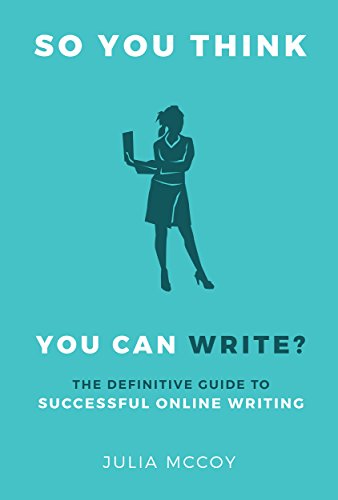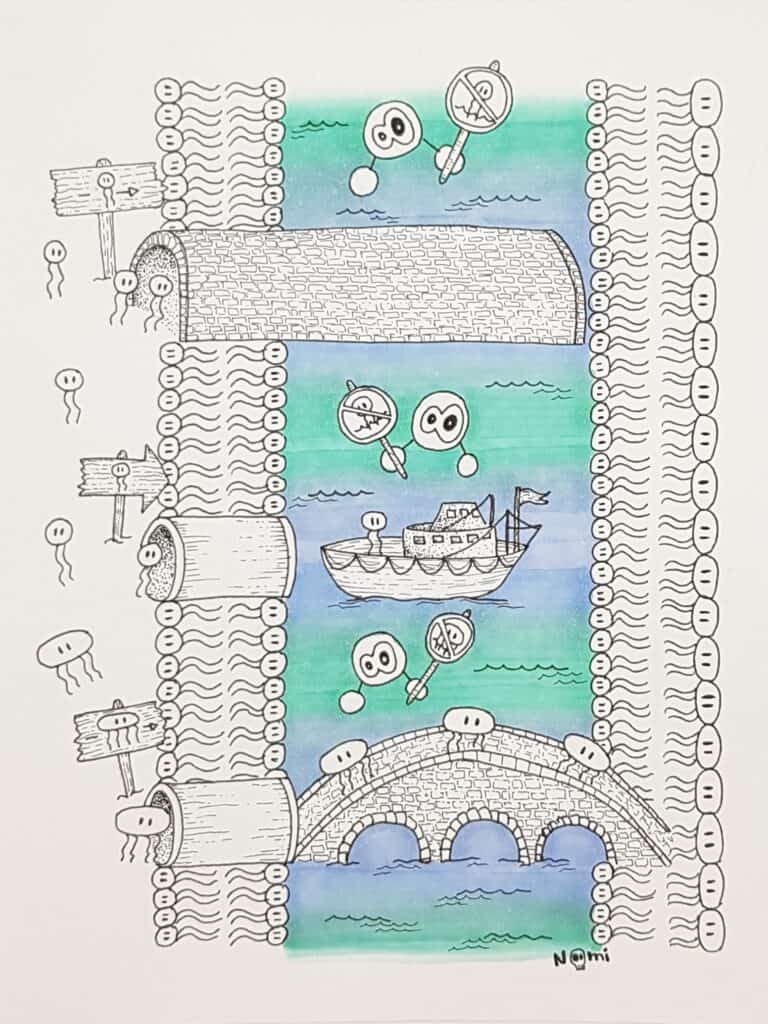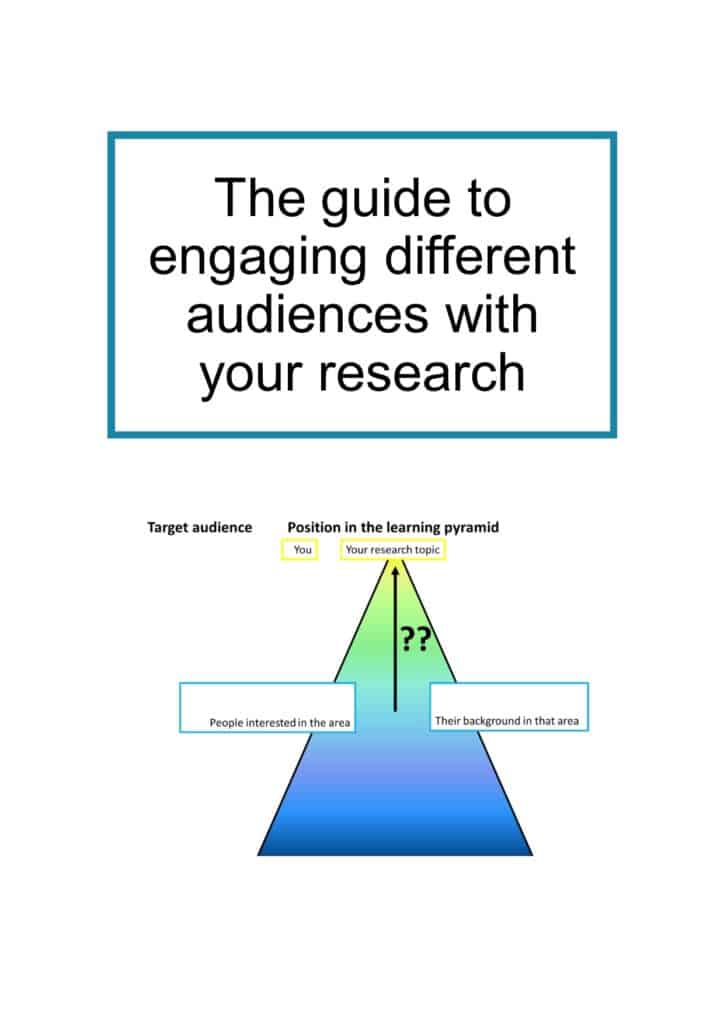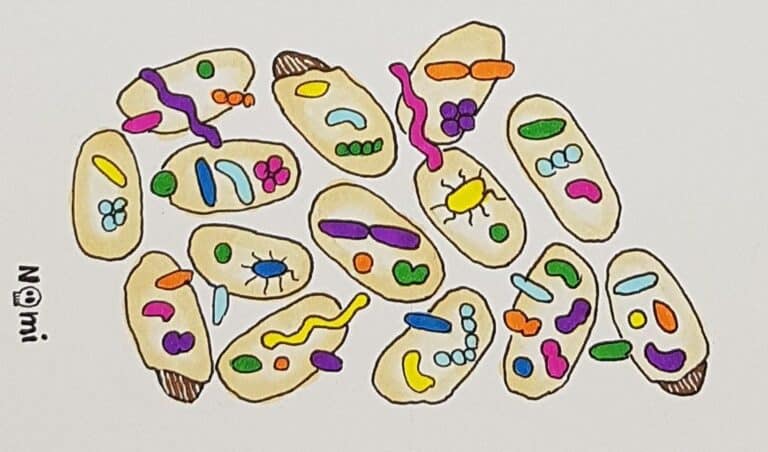This week two years ago, I started writing the science blog BacterialWorld.
I never thought it would last that long.
I guess I never thought that I would last that long. That I would have the patience to write science communication articles regularly; to sit down and learn so much technical background about web writing, blogging, search engine optimisation or social media marketing.
But for some reason I did it. And it opened a whole new world for me. A world that let me start an online business for science writing and science communication.
After two years of writing a science blog, I want to share which skills I gained from this project and how they can help you share your research.
Finding my science blogging voice
Two years ago I had this amazing (crazy?) idea and completely fell in love with it. I wanted to tell people outside of academia how amazing bacteria are. And I knew from the beginning, that for me it would mean writing a science blog for some obvious reasons:
- I do enjoy reading a lot more than listening or watching stuff online
- I can write and explain complex stuff
- and I really don’t like listening to my voice!!!
Hence, starting a podcast or video channel was out of question for me (and yet, people are trying to convince me otherwise!).
But I had no idea how to do it. Only, that there was a platform called WordPress that I could use for this endeavour. So, I signed up for WordPress, started a science blog called BacterialWorld and wrote my first posts.
But even after publishing a few articles, I thought that I wasn’t too good at the actual writing part. My sentences were clunky, hard to read and still sounded incredibly sciency. I needed to find a non-scientific voice for writing my science blog.
Hence, I read books on science blogging and writing for the web that helped me find my writing style. And with more practice, the writing part became easier and the explanations better.

Learning how to write a science blog
But still, there were all the technical aspects of blogging to figure out. And I still had no idea what search engine optimisation (SEO) was and how it could help me (so I am supposed to write for machines now??).
Plus, I realised that social media was pretty cool for my vision. But still, I knew I could use it more efficiently to reach more people. Therefore, the researcher in me got curious and motivated and I read lots of books and blogs on
- Blogging in general (who would have thought that people BLOG about BLOGGING?) – everybody wants to be a blogger now, hence there is so much stuff out there on this topic and every question one might have is answered by a blogger
- Search engine optimisation (SEO) and technical basics on blogging – this took me the most effort to grasp and I know exactly where my limitations on this topic are, but again the online community is super helpful. Just as when your experiment in the lab finally works, you feel super proud when the website behaves exactly as you want it to!
Similarly to sitting down to read research papers to figure out how to do an experiment; I sat down, figured out how to build a website with a blog and looked at the results. And in the end, the website looked a lot more colourful, became pretty fast, was found on Google (yaaay) and people started sharing it on social media.
Building a science blogging team
But obviously, I could not have done any of that on my own.
The BacterialWorld family now also consists of Noémie. Noémie’s funnily-looking bacteria with their crazy eyes bring a lot of colour to the blog. I am still amazed by what Noemie comes up with when I merely have the idea of “something with a boat“. Thanks to her witty illustrations, the blog gained a lot of attention on social media.

This year also Rachel became a member of the BacterialWorld family. Rachel is super enthusiastic about telling people how awesome bacteria are and how much we rely on microbial activities in our lives. I hope you managed during Christmas to eat some of the foods produced by microbes that Rachel described in her latest post!
I am also very grateful to the people that I met on Twitter and who became friends and sounding boards to me and my ideas. Whether they are other science writers or illustrators or interested in science communication in general. I enjoy any of the discussions and video chats that we have to bounce ideas or share new resources or tools.
I guess BacterialWorld wouldn’t be what it is now without any of these people. Just as collaborations are important in academia to create amazing results, they are important for such a science blogging adventure.
Thinking about the target audience!
Writing a science blog made me realise how important it is to think of the audience that you are trying to reach with your article.
Depending on whether I wrote a blog post or an article for a magazine for microbiologists, I would use different phrases and technical jargon and explain the scientific background differently.
But I also saw that some scientists had troubles “switching” their language when they wanted to write for the blog.
If you want to get better at addressing your audience in the right way, check out SciComm Society to learn to engage your audiences with your research.

So, I made it my mission to help scientists find a voice that speaks to non-scientists so that they would become better at explaining their research to them. I also want to help them in their first science communication adventure – all with the idea to share their awesome research and trigger scientific discussions.
Writing a science blog is so much more!
To me, the most important goal of BacterialWorld is to excite people about the amazing world of bacteria, tell them how useful bacteria are and how they impact our daily lives.
And I am convinced that scientific literacy should be accessible to everyone. Especially in this crazy information chaos that we are currently in, it is more important than ever to paint positive pictures of microbes and to inform about microbiology in an accessible way.
This is why I decided to found MicroComms to inform about and share microbiology research. I know that there are so many amazing stories about microbes to be told and so many interesting things for people to learn.
So, now I am here to help you tell that story and teach people something they did not know before!
Let’s get this party started!


2 Responses